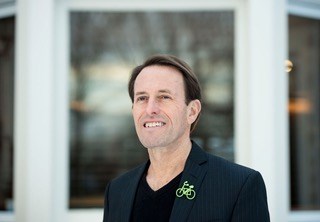It happened while I was paddling, somewhere between Harrison Lake and the Fraser River. Glorious sunshine had surprised us.
The water glimmered and ancient hills around us showered us with sanctity.
We beached kayaks for yet another sumptuous meal —every morsel seems like a culinary delight in nature. Electronics were the stranger, not the ever-present master. But my daughter pulled out her phone and read the news: “Snap BC Election.”
Whether you were kayaking in nature or going about your COVID-themed routines, the news probably seemed out-of-step. Life issues of the past nine months have focused on matters like physical distancing, not politics or elections. The public health officer has loomed more largely in our consciousness than the premier.
For all its negative aspects, politics has traditionally delivered one thing humans crave — a sense of togetherness. We together criticize our politicians.
We together rue the pettiness of partisanship.
We together sigh about the ineffectiveness of Parliament. But at least in pre-pandemic times, politics provided us the opportunity to meet in groups, small or large, to reflect on issues of the day.
COVID-19 has robbed us of that opportunity.
Physically distanced, you and I will be tempted to let this election unfold without us.
But, more than ever, we have to take seriously how our lives will be shaped by those who lead us. The only certain thing about the future is its uncertainty. Whether it’s COVID, climate change, economic collapse, or fentanyl, the unpredictable forces ahead of us only amplify the impact of political decisions.
So I plead with you and through you your family members and friends.
Steel yourself against inertia. Work to understand the issues. Decide to learn about your candidates.
Learn how to vote and be sure you do.
Here are two tools to ensure you play your role in this democratic contest. First, before campaign messaging clutters your mind, ask what values you hold most dear in the people who lead you. My book, On! Achieving Excellence in Leadership, suggests that, in a world of uncertainty, a leader’s values are the most reliable touchstone of her or his worthiness to lead.
Given that we are less and less certain about the issues in front of our leaders, can we at least rate candidates in their espousal of values, such as: freedom, responsibility, equality, compassion, and courage?
Secondly, ask yourself what time frame matters to the candidates appealing for your vote.
For instance, when they address health, are they speaking only of the virus? Or do they have a vision to build a healthy, fit community ready to respond to challenges of sedentary behaviour, cellphone addiction, nature deprivation, diabetes, cardiovascular disease, mental illness, and unsustainable sickness care costs? Political pronouncements designed to respond to the crisis of the day are beguiling.
But in healthcare and all other issues, politicians lead best who have a long-term vision. That’s why the non-profit organization I am involved in, the Canadian Health and Fitness Institute (CHFI.FIT) encourages politicians to consider our health over the next decade, not just over the course of the pandemic.
There are perilous times for democracy. Don’t be tempted to sit out this election, though you may be on a kayak, in a different zone.
Ask yourself what matters, what values and time frames matter, and exercise your choice. The election winners will influence our lives greatly.
John Weston is a lawyer and government relations consultant. He served as Member of Parliament for West Vancouver - Sunshine Coast - Sea to Sky Country from 2008 to 2015.




